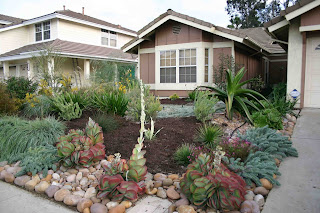While the East Coast and Midwest have seen more than their fair share of rain and other precipitation over the last several months, the West Coast has seen extreme drought and numerous wildfires. Even my state of Washington is currently experiencing a “historic monster” of a fire and resources are dwindling. So, all of us up and down the West Coast need to conserve as much water at home as possible. There may be less we can control at work, grocery stores and other public areas, but at home we can (and should!) do everything in our power to minimize our water use.
Not sure if you’re doing enough or wondering what else you can do? Do not fret! I have plenty of tips below.
First, make sure nothing is leaking. Pipes and faucets are easy to check, but toilets are a little more complicated. Try this trick: put a few drops of food coloring in the tank of your toilet and do not flush! If, after a few minutes, the color has entered the toilet bowl, then it is time to call your plumber or order new parts. Also, keep anything that isn’t waste or toilet paper OUT of the toilet. Several gallons are wasted each time you flush garbage.
Once any obvious leaks are fixed, check for hidden ones. Locate your water meter, note the reading and leave all water off for a couple of hours. If the water meter reads the same a few hours later, then you are good to go. However, if you haven’t used water and your meter reads differently, you have a hidden leak somewhere. The longer leaks go without repair, the more water you waste; even a few drops every hour add up quickly.
The most important rule for conserving water is: don’t leave the water running. Turn off the water in the shower while you shave; turn off the water while you brush your teeth; turn off the water while you wash dishes. Letting the water run during these activities wastes much more than you think. You can easily leave a little bit of water in the tub or sink to rinse your razor; rinsing with running water wastes more. You only need a drop of water to wet your toothbrush before brushing and you can easily soap up dishes without leaving the faucet on (have a dish with a little water in it while you wash the other dishes).
Another good rule of thumb is to wait to run dishwashers and washing machines until you have a full load. Look into efficient dishwashers and water-saving front load washers. Water efficient appliances are not only becoming more popular, but more necessary, too. You can find anything from low flow shower heads and toilets to irrigation controllers. The EPA has great resources for water efficient, green homes. Also, for you Californians, consider the CEC’s Water Energy Technology (WET) program for water and energy saving appliances and technologies.
See how cool this looks?! If I had a lawn this would be it.
If you’re living in the Southwest and you still have a green lawn, it’s time to rip it out. Don’t waste any more time! Either let your lawn go brown or replace it with drought-resistant plants. Need some more reasons to do this? Los Angeles has a Cash for Grass program, Governor Brown has banned brown lawn fines and succulents and boulders are pretty.
Water is 100% a depletable resource, as we have daily proof. Cities are suffering and this will only continue. While we all recognize this, our situation will only get worse if we continue to talk the talk but not walk the walk. It is up to each one of us to monitor our usage and minimize it in as many aspects of our lives as we can. This is not just a suggestion, this is a call for action! In addition to doing the right thing, you’ll find yourself with a fuller wallet. Water conservation and efficiency, like energy conservation and efficiency, puts money back in your pocket and there’s absolutely nothing to dislike about that.
It’s up to you to make a change. Will you accept this challenge?


No comments:
Post a Comment